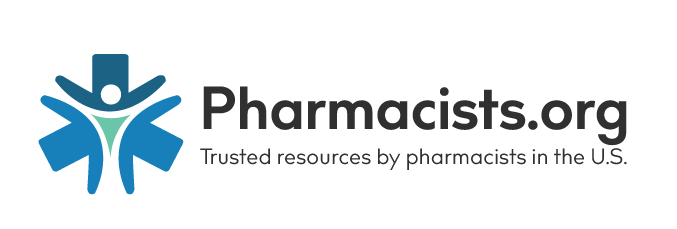This post originally appeared on NonClinicalDoctors.com, an awesome site dedicated to all the great ways doctors are finding niches to make a living in nontraditional ways.
Key Points
- A big part of finding a new job for pharmacists is using the job search engines well. One great way of getting started is by searching for jobs based on degree (i.e. “PharmD”), instead of job (“Pharmacist” or “Pharmacy Manager”).
- To find jobs in a new location, use Google Maps and find clinics, hospitals, and other potential employers in that area. Then check their career pages regularly and reach out to their recruiters.
- Start a career spreadsheet to keep tabs on your accomplishments. You can then easily copy and paste those into your resume to customize it to the job you are applying to.
Long before I began pharmacy school I had an itch for adventure, and as I went through school I always kept an eye out for opportunities to either make the most of my summers off (other than my rotation) or to combine my love of travel and the outdoors with pharmacy.
I remember one wintery day, when it was snowing hard outside, I logged into the library’s computer and began a search for a summer escape. I don’t quite remember what I typed in, but I discovered a Divemaster Internship on Roatan, an island off the coast of Honduras. I grew up snorkeling and had recently gotten scuba certified, so I didn’t hesitate! I spent 4 weeks there, working in the shop, helping on the boat, and leading dive tours nearly every day.
The next summer was the summer after I graduated, and I practically wore a snorkel to my graduation. I talked Walgreens into letting me start June 1 and flew out to Roatan right after graduating to do an Assistant Instructor Internship, diving nearly every day for 3 more weeks.
About a year after graduating, I moved to Hawaii, lived there for 5 years on both the Big Island and Maui, dove another 150+ times, and came back to the mainland, where I got into project management, finished an MBA, started a medical writing business, and got into business and pharmacy consulting.
You’re probably wondering by now – why am I telling you all of this?
Because I strongly believe that the biggest thing limiting your career is your imagination.
I’ve had a crazy, nontraditional career that admittedly many people might prefer living only vicariously (or maybe not at all). However, I have discovered along the way that regardless of what you are looking for, whether that be a job in a new location, a nontraditional job, a new practice setting, or even a promotion within your current company, there are patterns, tips, and tricks that make the journey from where you are now to where you want to be more accessible.
Here, I would like to share my top tips with you to find and get that next move.
Table of Contents
#1: Make the most of job search engines
Many people use search engines by only searching for their job title. The problem with that, however, is that it returns limited results. For example, if I search ‘pharmacist,’ guess what results I will get? It might sound obvious, but if all I see are pharmacist openings then I’ve really limited my options.
Instead, try other, broader search terms. For doctors, instead of searching ‘doctor,’ ‘rheumatologist,’ etc., try searching ‘MD,’ ‘healthcare,’ ‘healthcare remote,’ or ‘medical writer.’ If I were a doctor, I might also search ‘DO,’
#2: Take stock of the companies around you
If you’re reading this article, there’s a good chance you work in some capacity for a hospital, clinic, or other healthcare setting. All of these organizations contract other companies to take care of certain aspects of their operations on their behalf. All of these companies also need employees, and sometimes they hire healthcare professionals.
For example, Inmar is in the business of helping pharmacies manage drug recalls, get credit for expired medications, and reconcile their claims, among other things. They also hire pharmacists. EMR systems, like Cerner, Epiq, and Athena, probably need pharmacists, nurses, and doctors with a background in informatics. Wolters Kluwer, which makes Lexi-Comp, hires pharmacists and probably physicians to keep their drug references up to date.
If you see every company around you as an opportunity to explore, then the world is your oyster. There’s no harm in at least looking at their career pages or reaching out to someone in the company to express interest.
#3: For jobs in a new location, use Google Maps to your advantage
Finding a job in a new location, especially an international location or area where there aren’t many traditional jobs, can be tough. However, I’ve found the secret weapon: Google Maps.
Let’s say you are a family medicine doctor and your dream has always been to move to Saipan. You aren’t interested in nontraditional jobs and want to practice as a doctor, but just love the idea of living on Saipan. I’m using Saipan as an example because most of us would picture it as being a very tough place to find a job.
After typing in ‘hospital Saipan,’ I headed on over to Google Maps. There, I noticed a few results, but the Commonwealth Health Center in particular stands out because it has a website and appears to be the primary hospital on the island. I clicked on their site, headed over to their Careers Page, and as of the time of this writing found physician openings for multiple specialties.
I then headed back to Google Maps and typed in ‘clinic Saipan.’ In looking at the results, I see the Marianas Medical Center and Marianas Health both look promising.
As you can probably imagine, if it’s possible to quickly find 3 potential employers in a location as remote and small as Saipan, then if you’re looking to move nearly anywhere within the continental United States this strategy would be a very effective way to find your next position.
#4: Start your career spreadsheet
The gurus always tell us that we should tailor our resume to every single job, but unfortunately that could make applying for multiple jobs extremely time consuming. In addition, after you’ve been in practice a while it’s not easy to remember all the great things you did that could impress employers.
Meet the career spreadsheet. This spreadsheet compiles all of your career accomplishments, large or small, into one place. You can use this spreadsheet to tailor a resume or cover letter or even to prepare for an interview. Having it on hand for a phone interview, for example, will allow you to refer back to it as you are asked the very predictable behavioral-based interview questions. For in-person interviews, reviewing it in advance will refresh your mind of your accomplishments.
I keep mine on Google Sheets so I always have it with me. Column A is the employer and Column B is the accomplishment.
Interested in learning more?
If you found these tips helpful, I hope you’ll join me in my course entitled Mastering the Job Search and Land Your Dream Job in Healthcare.
In it, I go much more in depth with videos where you can watch me locate nontraditional and hard-to-find jobs and also see numerous hidden spots where your next opportunity might be hiding. We’ll also look at opportunities to build skills that employers want. Finally, I’ll guide you through writing your resume and cover letter that gets noticed and give you a template for both, and also help you through the job interview.
I am a pharmacist, community pharmacy consultant, and medical writer with over 12 years of clinical practice experience in community, outpatient health system, long term care, and academic settings. I am also the founder of PharmCompliance.com, a website dedicated to the success of community pharmacy.
As a pharmacy project manager, I led the implementation of new service lines, assist with ensuring legal and third-party compliance for over 70 retail stores, lead quality improvement and medication safety initiatives, write policies, procedures, and best practices for all our retail sites, and help with optimizing revenue cycle and pharmacy profitability. I have been responsible for DMEPOS and vaccine accreditation through CMS, obtaining new licenses and permits, and implementing a prescription drug kiosk embedded in our physician offices.
As a medical writer, my work has been featured in GoodRx, Pharmacy Times, Drug Topics, Patient Care Online, and in peer-reviewed journals. I have also given presentations on a range of topics, from disease state pharmacotherapy for medical residents to updates on the CDC vaccine storage and handling guidelines for a medical-grade refrigerator and freezer manufacturer. I have written and presented continuing education for CEImpact, FreeCE, AchieveCE, Ascension Health, and the Florida Department of Health.








